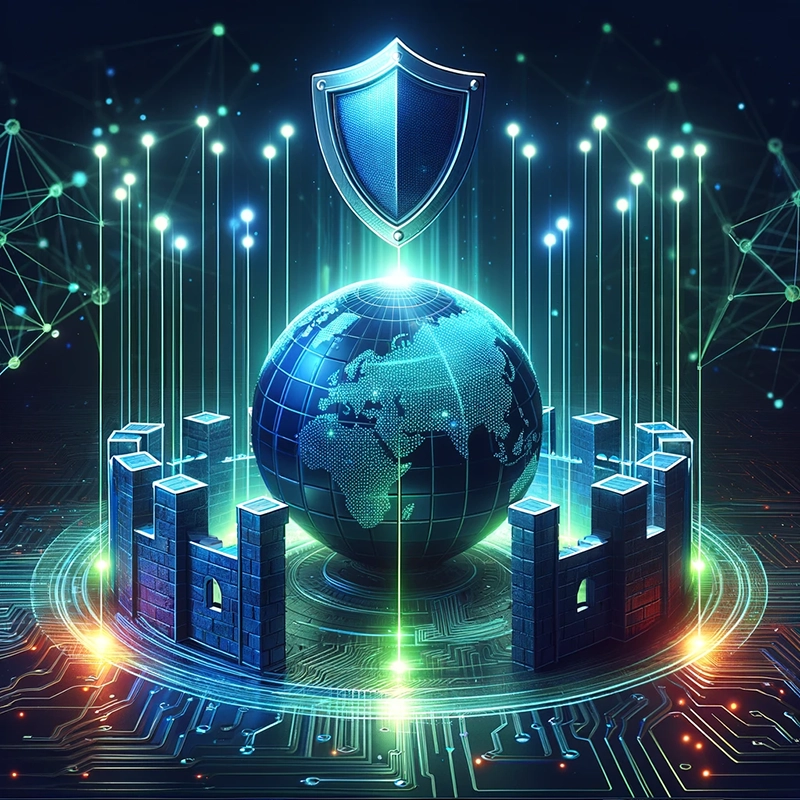Storing information online is nothing new to the average internet enjoyer. People use WiFi connections and browsers for just about everything; from internet shopping to paying rent, users worldwide trust applications and websites to hold our most personal data.
So, in this age where everything and anything can be found online, what can we do to protect our private information like credit card details, social security numbers, and passwords? Cybersecurity has advanced tremendously over time, and there’s a multitude of actions people can take to protect their precious data. Here is everything to know about the new and old dangers of internet usage and how to defend yourself from malware or breaches.
Common Threats
In the world of internet safety, knowledge is power. Understanding the hazards of operating online is imperative to ensure a steadfast defense. Phishing, viruses, malware, and spam are common internet problems that users should know about for optimal digital security.
For as long as the internet has been around, there’s been the potential of nefarious viruses. Viruses, at their fundamental level, are any kind of malware that spreads by infecting your hardware or files and making copies of itself. In many instances, viruses are harmless, but some can seriously damage your computer and leave your private information vulnerable. The most prevalent way malware spreads is through unfamiliar email addresses with attachments, often relegated to your spam or junk folders.
Phishing is a more advanced problem in our contemporary era. This dubious practice is when a bad actor pretends to be a company or a government worker, asking for personal information or money. Phishing can happen through text messages, emails, calls, and other messaging applications. Through the pandemic, many scammers elevated their practices to sound more believable, making it difficult for those who don’t use the internet often to discern fraudulent behaviors.
Ransomware is a specific type of virus that internet users should know about before jumping on the World Wide Web. Once unleashed, this type of malware will prevent a user from accessing their personal information until they pay a determined amount. Advanced crypto-malware will make the victim pay a sum through an online payment method to receive a decryption key. Though accepting the ransom will help unblock your private info, scammers may be able to keep your credit card information through the used payment route. Ransomware may occur on your computer if you visit a compromised or unfamiliar website.
How to Protect Yourself
Now you know the basic viruses and malware floating around the internet, so how does one guard themselves from these ever-growing threats? The best offense is a great defense; various methods like installing security programs or VPNs and recognizing sketchy occurrences will aid you in thorough digital protection. Browsing the internet doesn’t have to be scary, but it takes vigilance, knowledge, and regular practices to secure your passcodes and private data.
Utilizing a secured home network or WiFi connection is one of the best ways to stop bad actors, scammers, and phishing attempts. When you visit a coffee shop or restaurant with free internet, you may need to learn how protected the connection is, which opens the door to possible intrusion. Addressing cybersecurity within your home network while being aware of public WiFi is a great route to defend yourself from scams and viruses successfully.
When at home, always keep your WiFi private and ensure that the password is something only you and your housemates know. Outside the house, using an establishment’s public internet may be unavoidable. If you’re using public WiFi, carrying out online transactions like accessing your bank account or shopping should be reserved for private internet connections.
Saving digital payments for a secured network is easier said than done, so what can you do if you must use public WiFi for vulnerable transactions? Installing a VPN is the best course of action for keeping your private information protected at all times. VPN stands for virtual private network, which may be familiar to avid streamers or TV enthusiasts who access shows exclusive to certain countries. This software hides your IP address and encrypts your internet usage, making it harder for scammers to locate your computer or steal your data.
VPNs are efficient when it comes to encrypting your data, ensuring that you are the only one with access to your private info while on public WiFi. This software is also excellent at protecting online payments and transfers. You’ll be able to open private files and input credit card information without worrying that your data may be breached wherever you are in the world.
Choosing strong and lengthy passwords is another way to protect your privacy and divert scammers. Though it may be easy and efficient to make all your Netflix, Hulu, and online banking passwords the same, creating individual, convoluted codes for each is better. This way, if one of your accounts is breached, bad actors will have a more challenging time getting into any adjacent private accounts. To make a strong password, avoid using sequential numbers and personal dates like one’s birthday. You should use a mix of numbers, letters, and symbols with more than 12 characters to guarantee you’re using a solid passcode.
A recent practice more internet users should implement is multi-factor authentication. Now, most social media, banking, and virtual payment sites will need two-step verification for you to access the account or finalize a transaction. This authentication method is easy to set up: a website will usually ask for your phone number or email so that you can verify yourself with an extra passcode after signing in. A website with multi-factor authentication may also ask you to select personal questions to answer, like “What street do your parents live on?” or “What was your favorite band in high school?” These questions will be prompted once you sign in to your account, ensuring that you and only you can answer them and access the site.

